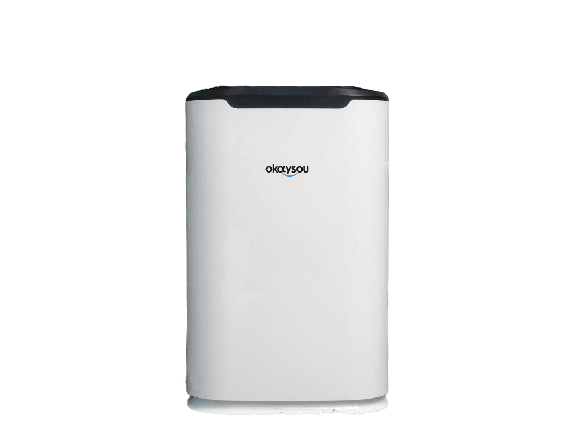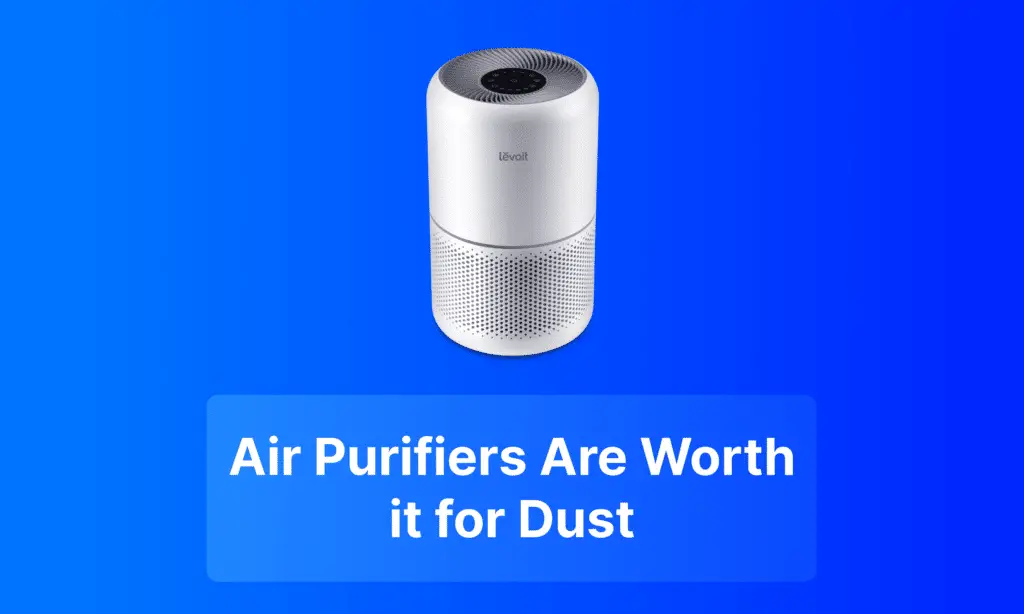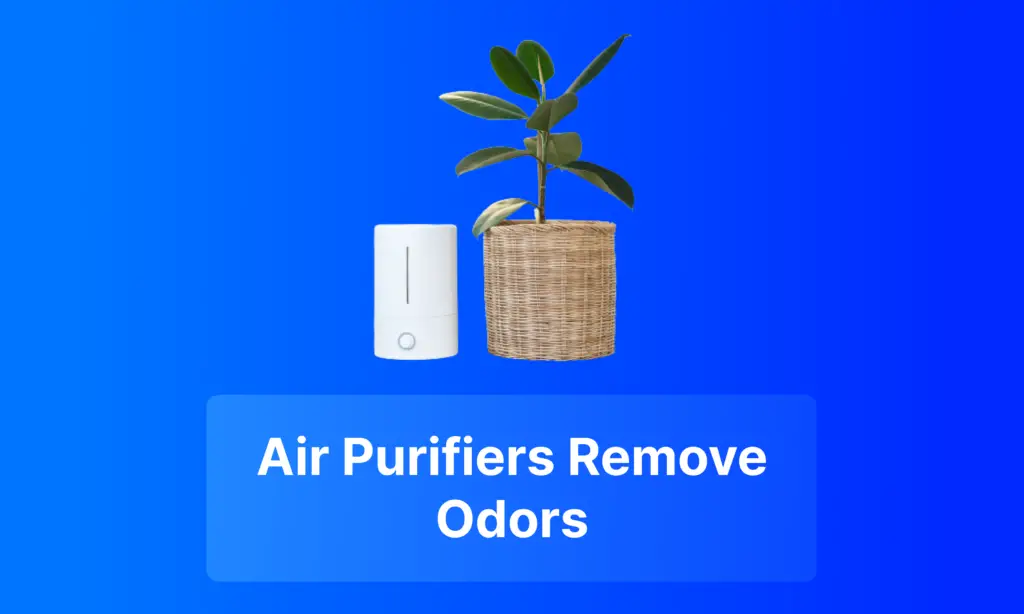An air purifier can be a great investment for your home. It can help to remove allergens, dust, and other airborne contaminants from the air, making it healthier for you and your family to breathe. If you suffer from allergies or asthma, an air purifier can be especially beneficial. However, even if you don’t have any health conditions that could be aggravated by air pollution, an air purifier can still be a good idea. so let’t discuss more in detail about Do I Need an Air Purifier ?
Think about the air you breathe when walking down any street. You’ll notice a lot of dirt and grime mixed in with all that clean freshness, right? That’s because your surroundings are filled only with natural particles–things like pollen from plants or dust bunnies rolling around on carpeting at home (I know our family loves them). Not only do they make breathing hard but these same substances can also trigger allergies!
There are a few things you should keep in mind when deciding whether or not to purchase an air purifier. The first is the cost. Air purifiers can range in price from around $50 to over $500. You’ll also need to factor in the replacement filters, which will need to be changed every few months.
The second thing to consider is the size of the unit. If you have a large home, you’ll need a larger air purifier to effectively clean the air. Conversely, if you live in a smaller space, a smaller unit will suffice.
Do I Need an Air Purifier?

Because an air purifier can remove pollutants and allergens from the air, it is worth the investment. There are several health advantages connected with using air cleaners, but their effects vary from person to person and are dependent on the kind of contaminants that exist indoors. Overall, air purifiers are worthwhile investments.
We’ll explain more about what air purifiers do and why they’re worth it later on, but wanted to point out that we have separate top 10 air purifiers where you may compare the top-rated models.
We know you’re always on the go, which is why we’ve created this list of the 5 fastest ways to get healthy with home air purifiers. Our top pick costs less than $100 and will make your house cleaner in no time!
Air Purifiers Are Worth it for Dust

Air purifiers not only improve the air quality in your home but also help to clean other surfaces. HEPA filters can trap airborne particles that make up dust, including pollen, mold spores, dust mites, human skin cells, and hair. By removing these particles from the air, air purifiers make it easier to keep surfaces like floors and furniture clean.
An air cleaner called an “ionizer” is also available. The core concept of an air ionizer is that it electrically charges the air, causing pollutants to fall to the floor for vacuum cleaning. Some ionizers, however, feature an electrostatic collection plate to catch these dust particles, but it isn’t always 100% effective.
Air purifiers that have a HEPA filter are worth the purchase because they will reduce dust accumulation inside the room, which means less time spent cleaning.
Air Purifiers Control Allergies and Asthma
If you or your children suffer from allergies or asthma, air purifiers are definitely worth the investment. Air purifiers can remove many of the allergens that trigger these conditions, such as dust mites, pollen, and pet dander. In fact, air purifiers are so effective at reducing allergens that they are often recommended by doctors.
If you or your family members suffer from allergies or asthma, air purifiers are worth one study found that air purifiers were able to reduce the symptoms of asthma in children by up to 50%. Another study found that air purifiers reduced the severity of allergies in children by up to 60%. Air Purifiers Reduce OdorsIn addition to improving air quality, air purifiers can also help to reduce unpleasantly.
Air Purifiers Remove Odors

People, animals, food, cigarettes, sewage, mildew (particularly in the bathroom), and people are all potential sources of unpleasant odors in a home. Cooking odors, tobacco smoke, garbage smells, moldiness (particularly in the restroom), and human presence can all contribute to foul-smelling air. Because these units may help improve the smell of a house, many individuals think that they are worth the money.
By using an air purifier with an activated carbon filter, you can avoid overwhelming your senses with artificial fragrances and leave the door open for fresh air to come in.
In addition to improving air quality, air purifiers can also help to reduce unpleasant odors. Air purifiers work by trapping odor-causing particles and then releasing fresh, clean air back into the room. Some air purifiers even feature activated carbon filters, which are specifically designed to remove odors.
Air Purifiers Are Worth it for Pet Owners
If you have pets, air purifiers are worth the investment. Pets shed fur and dander, which can trigger allergies and asthma. In addition, pets can track in dirt, pollen, and other outdoor contaminants. Air purifiers help to remove pet allergens from the air, making it easier for people with allergies to live with pets.
If you have dogs, an air purifier is a useful device to keep in your house. By capturing pet dander, hair, and scents, a decent air purifier will clean the air in a household with pets. It can help to keep your home cleaner and smell fresher while still allowing you to enjoy your dog. It also lowers the number of airborne allergens so that friends or other family members do not breathe in as many pet allergen particles that cause allergic reactions.
Air Purifiers Remove Harmful Toxins
You may not realize it, but there are many common household items that can release harmful toxins into the air for up to two years. This includes building materials, adhesives, wall paint, furniture, and cleaners.
Chemical off-gassing is the result of volatile organic compounds (VOCs), which can be very hazardous to one’s health if exposed to large amounts over time. This usually occurs in homes that aren’t well-ventilated.
Indoor air can be polluted with harmful toxins, such as formaldehyde and benzene. These toxins can come from household products, like cleaning supplies, air fresheners, and scented candles. Formaldehyde is a known carcinogen, and benzene has been linked to blood disorders. Fortunately, air purifiers can remove these harmful toxins from the air, making your home a healthier place to live.
Air Purifiers catch Bacteria and Viruses
There can be millions of tiny bacteria and virus particles flying around your house at any one moment. And these germs and viruses might cause a variety of illnesses.
Air purifiers with True HEPA filters can remove many bacteria from the air; however, they are not as effective against viruses. If you want to get rid of viruses, choose an air purifier equipped with ultraviolet light. This type of purifier will break down the DNA structure of viruses so that they cannot harm your health.
Many individuals find air purifiers to be well worthwhile for this reason alone: they want to breathe cleaner, more sterilized air.
Air Purifiers Capture Mold Spores
Mold is a type of fungi that can grow indoors and release spores into the air. These spores can cause respiratory problems, such as coughing and
By using an air purifier, you can decrease mold growth in your home by capturing airborne mold spores.
The best mold-removal air purifiers include a True HEPA filter, an activated carbon filter, and ultraviolet radiation. Mold spores will be captured, the smell will be reduced, and the core of the mold destroyed using this combination.
Air Purifiers Remove Smoke
If any of the following apply to you – being a smoker, living in an area prone to wildfires, or not having a well-ventilated kitchen – then an air purifier can help remove the smoke produced by tobacco, forest fires, and cooking.
Smoke-free rooms not only have a distinct odor, but they also contain more irritants than ones that still have some traces of smoke. Smoke particles are visible in the air and cause breathing difficulties, so ventilation systems must be used to keep them at bay. High-efficiency particulate air (HEPA) filters can remove both odors and visible smoke particles while dense activated carbon filters do the same.
Do I Need an Air Purifier?
The information above answered the first question, “Are air purifiers worthwhile?” If you want cleaner air, air purifiers are definitely worth the money.
You might be wondering if you even need an air purifier. The answer to that question is dependent on a few things, which we will go over in the next section.
Some people see significant health benefits from using an air purifier while others do not notice much of a difference.
The following recommendations should help you understand whether or not you need an air purifier in your home.
You Do Need an Air Purifier If:
- if sometimes dust just seems to appear out of nowhere. An air purifier can help remove dust particles from the air before they have a chance to settle on surfaces.
- You want a more odor-free environment. Air purifiers with a specific type of filter can remove odor molecules from a variety of sources of air.
- You’re living with allergies or asthma and want better relief like the other 50 million Americans. An air purifier can assist you in breathing more easily and having fewer allergies and asthma attacks. Always seek advice from your doctor before stopping any medicines, however.
- Sickness doesn’t discriminate—it can happen to anyone at any time. If you or someone in your household is particularly susceptible to illness, an air purifier can help trap the harmful pathogens and microorganisms that cause sickness.
- If you want to breathe easier and stay healthy then an air purifier will remove harmful toxins from the air.
- you are one who wants their house to don’t smell like smoke, whether it be from tobacco, cooking, or wildfires. Air purifiers can help reduce the level of smoke and odor in your home by trapping visible and invisible particles so that you can breathe easier.
- You have pets and want to minimize the amount of dander, hair, or odors in your house. An air purifier is a wonderful tool for capturing all sorts of particles emitted by cats, dogs, and other pets so that your home stays cleaner.
- You’ve been exposed to mold spores and have an allergic reaction. Air purifiers may help to decrease the number of mold spores in the air, preventing you from breathing them in.
- You want to maintain your health as much as possible while you’re at home. Air purifiers are designed with this in mind. Most people who use an air purifier notice general improvement in their health.
You Do Not Need an Air Purifier If:
- You clean on a regular basis and don’t have an excessive amount of dust inside.
- There are no unpleasant odors in your house.
- You don’t get sick very often from encounters with everyday germs and viruses, which is a good thing.
- If you or anyone in your household doesn’t smoke,
- If you don’t have severe allergies or asthma and can handle breathing in allergen particles like dust, pollen, mold spores, and pet dander, then this is the right place for you.
- You have house pets that don’t produce a lot of dander or odors.
- You either haven’t remodeled your home in a while or you don’t use many cleaning products with volatile organic compounds (VOCs).
- The air quality in your home is excellent.
Do Air Purifiers Really Work?
The bottom line is that air purifiers do work. They can significantly improve the air quality in your home by removing harmful particles from the air. If you are someone who suffers from allergies, asthma, or other respiratory problems, an air purifier can make a big difference in your quality of life.
Air purifiers can also help reduce the spread of illness by trapping harmful pathogens and microorganisms. If you are looking for a way to improve the air quality in your home, an air purifier is definitely worth the investment.
An air purifier’s main purpose is to clean the air and many people see a significant difference in their health after investing in one. They work by trapping airborne particles that haven’t had a chance to settle on surfaces, however, they aren’t as effective at removing pollutants from these areas.
Filtering the air can help to remove dangerous particles from indoor places, notably allergens, smoke, and mold, according to studies. Air purifiers that use one or more filters together with a fan to move air throughout the device
Given the fact that indoor air quality may be up to five times more polluted than outdoor air, a decent air purifier does, in fact, make a difference. Many of the pollutants created by traffic pollution, household activities, and natural elements can be neutralized by air purifiers with the appropriate types of filters.
However, keep in mind that air purifiers perform best when used in combination with good housekeeping habits. An air purifier cannot be a one-size-fits-all solution all of the time.
As mentioned, each air purifier filter or technology type is best for certain air cleaning tasks, such as:
- HEPA filter: For dust removal and hair collection.
- True HEPA filter: For allergens, visible smoke, and bacteria.
- Activated carbon filter: For odor molecules and VOCs.
- Ultraviolet light: For mold spores, bacteria, and viruses.
Is An Air Purifier Worth It Summary
We hope the data on this page assisted you in making a decision about whether air purifiers are worthwhile for your home. We attempted to cover all you needed to know about the advantages of air cleaners and shed light on the issue of whether or not air purifiers function.
air purifiers are worth it if you want to improve the air quality in your home.-Suffer from allergies, asthma, or other respiratory problems.-Are looking for a way to reduce the spread of illness.
Air purifiers may not be necessary if you have excellent air quality in your home.-You don’t suffer from any respiratory problems.-You have good housekeeping habits.
FAQ
Do air purifiers make a difference?
While it’s not possible for an air purifier to trap all pollutants and particles that circulate in a room, certain types of filters can successfully capture a substantial amount of unwanted substances and allergens. HEPA filters are a common feature in many air purifiers, and they are designed to capture various particles, such as dust, pollen, and some types of mold spores.
Do you sleep better with an air purifier?
According to a clinical study conducted in May 2019, the answer is yes. The study showed significant improvement in participants’ sleep simply by improving the air quality. Air purifiers are designed to remove particulates from the air, which can reduce allergic symptoms and improve sleep. Therefore, using an air purifier can help enhance your sleep quality.